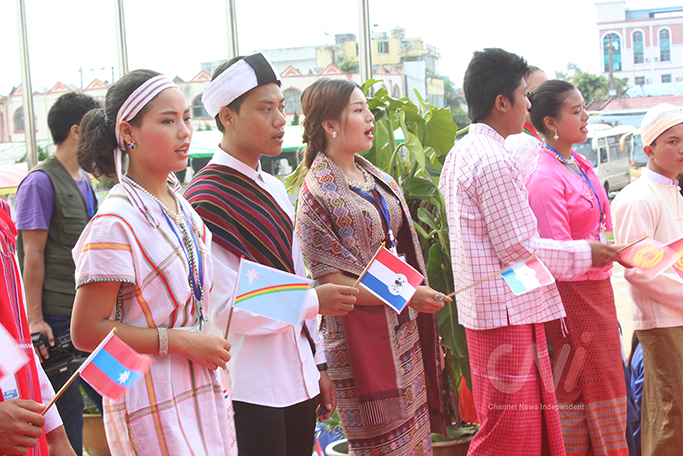CNI News
18 Sept 2022
If the 8-state solution is adopted for building a union, peace cannot be achieved, Central Executive Committee Member Sao Khun Kyaw Win of the Pa-O National Organization told the CNI.
He added that the 8-state solution can even aggravate the situation in Shan State.
Saw Khun Kyaw Win told CNI, “In my opinion, peace will never be achieved if the 8-state solution is pursued. Political negotiations will never take place. In Shan State, it will exacerbate the situation. Territorial control of each ethnic group in Shan State is known to all. If the 8-state solution is approved by all, armed conflicts and ethnic issues in Shan State cannot be resolved. Moreover, the PNO has held national political dialogue in Hopone because it is one of the ethnic groups permitted to do so. We have adopted a policy to establish a new state. The policy is not just for the Pa-O ethnic group. The new state may not be established not on the ethnic line like Pa-O, Palaung or Wa but on the population of each ethnic group. I think we should adopt such a policy.”
Ethnic peoples in Maijaryan.
At the end of February, 2020, representatives from 12 armed organizations met in Chiang Mai and agreed to build a federal union based on the 8-state solution.
However, it was only viable to implement the 8-state solution and the rest would be realized later, Kachin Politician U Kwam Gaung Aung Kham told the NCI.
He said, “It is viable that we implement the 8-state solution based on the 1947 constitution and consider what should be done later. It depends on their abilities.”
The demand to establish a state for the Bamar ethnic group reflected an ultranationalist point of view, Political Analyst U Than Soe Naing told the CNI.
A ceremony to sign the Nationwide Ceasefire Agreement of eight ethnic armed organizations on 15th October, 2015.
He said, “I think the demand to establish a Bamar state amounts to casting different realities into the same mold and reflects an ultranationalist point of view. Every ethic group must have to right to decide its own fate and equality but it is impossible to cast different realities in the same mold. Some area may become states while others remain as regions and districts. Let’s take the Ta'aung (Palaung) ethnic group as an example. The ethic group does not settle in a single area. If we combine all the areas they settle, we may designate their areas as a district because their areas do not have characteristics of a state. When they have acquired the characteristics, they will become a state. They have the right to establish a state at that time. The 8-state solution is not appropriate for socioeconomic conditions and realities of Myanmar.”
The 8-state solution is based on the concept that the Bamar ethnic group should also have a state like other ethnic groups.
Currently, there are seven regions, seven states, one self-administered region, five self-administered zones and one Nay Pyi Taw Council area under the 2008 constitution.
Ethnic groups like Shanni, Ta’aung, Wa and Pa-ai have also demanded state-status for their areas while Mongla (Special Area-4) has demanded to establish a self-administered zone in areas under its control.




